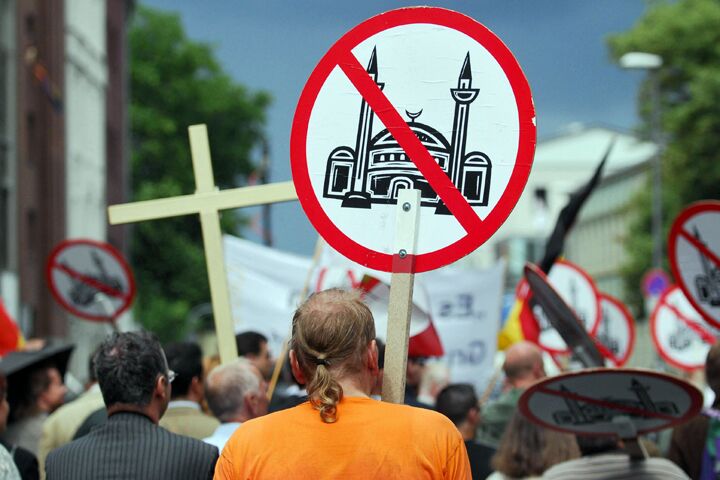
Germany: Anti-Islam Party Created
Germans are watching a new political party gaining support in parts of the nation for its stance against the building of mosques in German cities, Spiegel Online reported last Thursday.
The nation’s first anti-Islam party’s nucleus is in Cologne, where Muslims are planning to complete a 170-foot-high mosque in 2009. Muslim planners chose the site for the $40 million structure just 2 miles from the Cologne Cathedral, and the project has many Germans upset.
More than 30 percent of the city oppose the project outright, and 27 percent say they would approve of the mosque if it were smaller.
“It’s not a popular plan,” said Joerg Uckermann, the Ehrenfeld district’s deputy mayor.
Those who oppose mosque-building are finding a consolidated voice in a movement known as “Pro Cologne.” The organization has 300 members who have gathered over 20,000 signatures, and has produced a political party called “Pro nrw” with Cologne’s state of North-Rhine Westphalia as its namesake. Two of that party’s members hope to win state parliament seats in 2010. Spiegel reports that around a dozen other Pro Cologne-like initiatives have sprouted up in Gelsenkirchen, Duisburg, Düsseldorf and other cities.
Pro nrw leader Markus Beisicht says that in cities where no new mosques are planned, Pro nrw will fight smaller existing mosques.
Beisicht met with members of the far-right Austrian Freedom Party in November and has invited it and other far-right organizations, including Belgium’s Flemish Interest and France’s National Front, to an Anti-Islam Congress to be held in Cologne this coming September.
Pro nrw is largely bankrolled by Gunther Kissel, a 90-year-old contractor known for supporting far-right initiatives.
Intelligence officials believe the party’s views might strike a chord with voters to the point of overtaking the neo-Nazi National Democratic Party in the western part of the country. The neo-Nazis have recognized the threat, and are moving to establish competing anti-mosque initiatives of their own.
Uckermann, who is part of the conservative Christian Democratic Union of Chancellor Merkel, said the mosque dispute was breaking down walls that once made opposition to Islam taboo. “Before if you criticized this monstrous mosque you were a Nazi. But we have a problem with the integration of Muslims. It’s a question of language and culture.”
On the other side, Ditib, the Turkish mosque association in charge of the new mosque’s architecture and construction, rejected compromise initiatives to shorten the height of the mosque’s six-story minarets to make it less dominant.
Seyda Can, a theologian at Cologne’s Turkish Islamic Union, drew comparisons between what Islam is trying to do in Cologne and Protestantism, which, though it took a long time, is now accepted in the Catholic bastion.
“Muslims have been here for 40 years, yet people are praying in back rooms,” Can said. “There are 120,000 Muslims in Cologne, that’s 12 percent of the population. We should not hide.”
There are 3.2 million Muslims living in Germany. Many of them do not integrate well with German culture. In October, Germany’s Islamic Institute retaliated against concerns that there were too many mosques in Germany by stating the Muslim community would double the number of mosques there.
Though comparatively tiny, the anti-mosque movement in North Rhine-Westphalia is being watched closely by the Verfassungsschutz (Office for the Protection of the Constitution) intelligence agency. If the sentiment gains traction with voters, the trend could build into something much larger. That is a prospect many are wary of, especially in a country where the Holocaust began with rhetoric and the simple boycotting of Jewish shops.
For more on this trend and early warnings of what its underlying sentiment will lead to, read “Germany: Clash of Civilizations Already Underway” and “Cathedrals vs. Mosques: Tremors of a Coming Conflict.”
